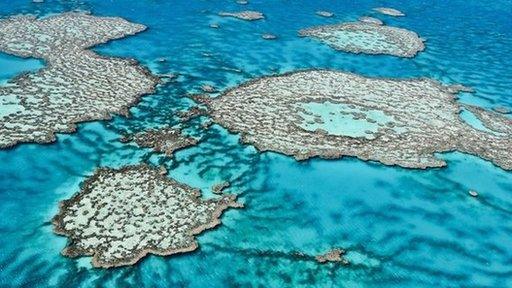Australia Great Barrier Reef outlook 'poor and deteriorating'
- Published
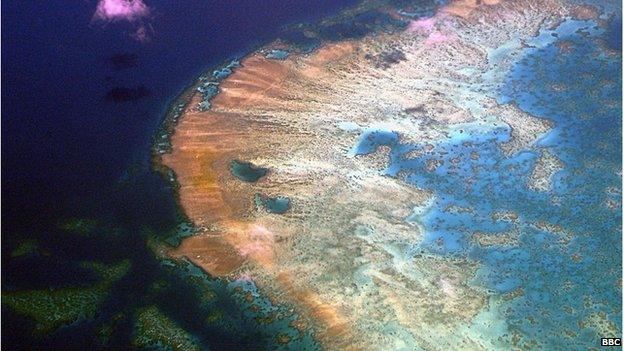
The Great Barrier Reef stretches for more than 2,600km (1,680 miles) along Australia's eastern coast.
The outlook for Australia's Great Barrier Reef is poor despite conservation efforts, with further deterioration expected in coming years, a report says.
The bleak forecast came in a five-yearly report released by the Great Barrier Reef Marine Park Authority.
Climate change remained the biggest threat to the site, the report said.
But poor water quality from land-based run-off, coastal development and fishing also posed challenges, it said.
"Even with the recent management initiatives to reduce threats and improve resilience, the overall outlook for the Great Barrier Reef is poor, has worsened since 2009 and is expected to further deteriorate," the report released on Tuesday said., external
Greater reduction of all threats at local and regional levels was needed to stop the decline and improve the reef's ability to recover, it said.
'No quick fixes'
The Great Barrier Reef is the world's largest coral structure, rich in marine life.
It stretches for more than 2,600km (1,680 miles) along Australia's eastern coast, containing 400 types of coral, 1,500 species of fish and 4,000 types of mollusc.
It is a Unesco-listed World Heritage Site, but in recent years the UN body has warned that it could be put on its World Heritage in Danger list because of its worsening condition.
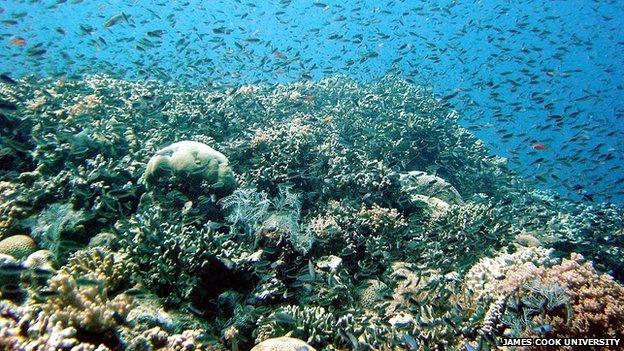
The Great Barrier Reef is the world's largest coral structure and home to rich marine life
Conservationists also fear that proposed development on the Queensland coast, including a planned coal port expansion at Abbott Point, could further harm its health.
In its report, the GBRMPA said that investment in some areas of reef management had yielded positive results, for example in reducing pollutant loads entering the reef.
It also highlighted examples of species that were making a comeback after years of decline, such as humpback whales and estuarine crocodiles.
But it said that climate change was already affecting the reef - causing coral bleaching and ocean acidification - and was "likely to have far-reaching consequences in the decades to come".
It said that measures had been put in place to tackle the impact of run-off, but it would be some time before the effect would be felt.
Illegal fishing also remained a problem, despite management reforms. On port development, the report said understanding of the effects of dumping dredged sediment at sea remained incomplete.
The expansion at Abbott Point involves dredging to improve access to the port, with the sediment to be dumped within the marine park - a move criticised by conservationists.
The GBRMPA report coincided with the release of a strategic assessment by the government on measures needed to protect the reef.
"Together, these reports reinforce there are no quick fixes and it will take time to turn around the overall health of the reef with a concerted effort from government, industries and communities," said Environment Minister Greg Hunt in a statement, external.
About A$180m (£99m, $167m) was being invested annually in the reef's health, he said, and an "overarching framework" for managing the reef from 2015 to 2050 was being developed.
"We are absolutely committed to protecting and improving the health of this iconic natural wonder so it can be enjoyed by future generations," he said.
- Published29 July 2014
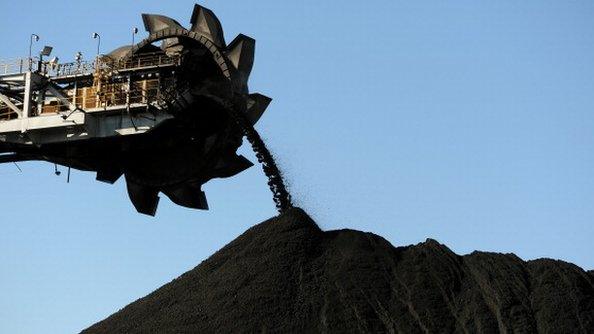
- Published19 June 2014
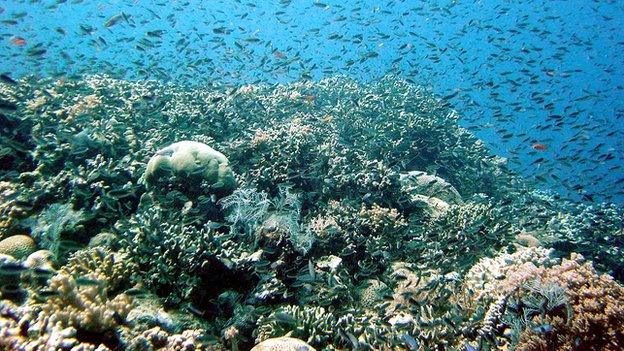
- Published1 May 2014

- Published31 January 2014

- Published17 January 2014
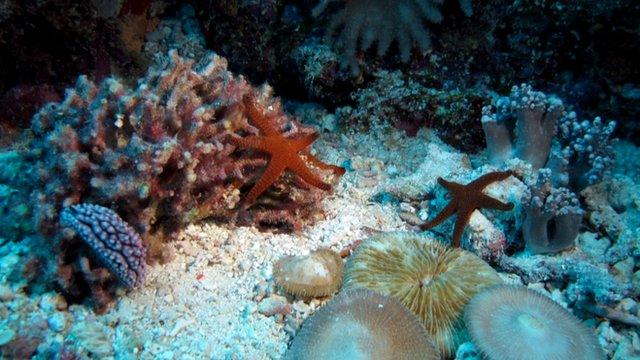
- Published21 August 2013
